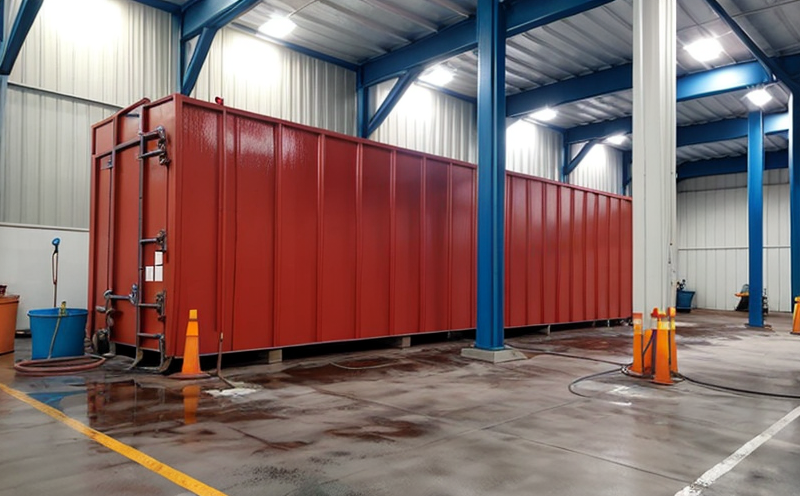Industrial Coatings, Paints & Corrosion Protection Testing
In industrial manufacturing and processing, coatings play a crucial role in protecting materials from environmental factors such as moisture, chemicals, abrasion, and temperature fluctuations. Properly formulated and applied coatings can enhance the durability, performance, and safety of various industrial equipment and infrastructure.
At [Lab Name], our comprehensive testing services for industrial coatings, paints, and corrosion protection are designed to meet stringent industry standards and provide reliable data that is essential for quality control, product development, and compliance. Our team of experienced professionals utilizes advanced instrumentation and techniques to ensure the accuracy and precision of each test.
Our testing capabilities cover a wide range of coating types including polyurethane coatings, epoxies, powder coatings, metallic paints, and anti-corrosion treatments. We provide services that cater to the needs of various industries such as manufacturing, construction, automotive, aerospace, and marine.
The testing process typically involves several key steps. Firstly, we assess the chemical composition and physical properties of the coating using techniques like Fourier Transform Infrared Spectroscopy (FTIR), X-ray Diffraction (XRD), and Scanning Electron Microscopy (SEM). Secondly, we evaluate the adhesion, durability, and cohesion through peel tests, scratch tests, and pull-off adhesion tests. Finally, we measure the film thickness using coating thickness gauges to ensure compliance with industry specifications.
To provide a comprehensive overview of our testing methodologies, let’s delve into some specific parameters:
Adhesion Testing
Adhesion is crucial for ensuring that coatings remain attached to the substrate under various environmental conditions. We use cross-hatch adhesion tests (C-HAT) and pull-off adhesion tests to measure the strength of bond between the coating and the underlying material.
Durability Testing
For durability testing, we subject samples to artificial weathering cycles using devices like Suntest CPS+ and Suntest CUV8. These machines simulate real-world exposure to UV light, humidity, salt spray, and temperature changes. This helps us assess the longevity of coatings in harsh industrial environments.
Film Thickness Measurement
The thickness of the coating is critical for achieving optimal performance. We employ non-destructive testing methods such as magnetic thickness gauges (for ferrous substrates) or eddy current instruments (for non-ferrous metals). These tools allow us to measure film thickness accurately without damaging the sample.
Chemical Resistance Testing
To determine how coatings perform against various chemicals, we conduct immersion tests in a variety of solvents and acids. This ensures that the coating remains intact even when exposed to challenging industrial conditions.
Compatibility Testing
When multiple layers or types of coatings are involved, compatibility testing becomes essential. We assess whether different materials can be applied sequentially without compromising performance. This includes checking for any signs of chemical incompatibility, mechanical failure, or color mismatch.
Application Methods Evaluation
We evaluate the effectiveness of various application methods such as spraying, dipping, brushing, and roller coating. Each method has its own advantages and limitations, and our tests help determine which technique is most suitable for a particular coating type.
| Standard | Description |
|---|---|
| ASTM D3359 | Determination of the Peel Adhesion of Coatings |
| ISO 4628-1 | Determination of Film Thickness of Paints and Related Coating Materials — Part 1: Magnetic Measuring Instruments |
| EN ISO 12944 | Protection in Humid Atmospheres — Metallic Coatings for Iron and Steel |
| ASTM G151 | Determination of Resistance to Salt Spray Degradation of Organic Coatings on Metal by the Salt Fog Test Method |
The above standards provide a framework for our testing protocols, ensuring that our results are consistent and reliable.
Benefits
Our industrial coatings, paints, and corrosion protection testing services offer numerous benefits to manufacturers and processors:
- Enhanced Quality Control: By identifying potential issues early in the manufacturing process, you can improve overall product quality.
- Compliance Assurance: Ensuring that your coatings meet applicable regulatory requirements helps avoid costly fines and penalties.
- Innovation Support: Our testing services provide valuable data that can inform new product development and optimization efforts.
- Risk Mitigation: Understanding the performance characteristics of your coatings under realistic conditions allows you to mitigate risks associated with failures in the field.
- Cost Efficiency: Early detection of defects reduces rework costs and minimizes downtime during production.
- Customer Satisfaction: Providing high-quality products that meet customer expectations fosters long-term relationships and enhances brand reputation.
| Application | Description |
|---|---|
| Aerospace Coating | Protecting aircraft components from corrosion and abrasion. |
| Offshore Oil & Gas | Safeguarding platforms and pipelines against harsh marine environments. |
| Automotive Bodywork | Maintaining the aesthetic appeal and durability of vehicles. |
| Bridge Construction | Ensuring long-term structural integrity in exposed areas. |
| Marine Vessels | Protecting hulls from saltwater corrosion. |
| Manufacturing Equipment | Extending the life of machinery and tools used in production processes. |
In each application, the goal is to select a coating that not only meets performance expectations but also adheres to specific standards set by regulatory bodies like ASTM, ISO, EN, IEC, etc. Our expertise ensures that you get the best possible solution for your needs.





